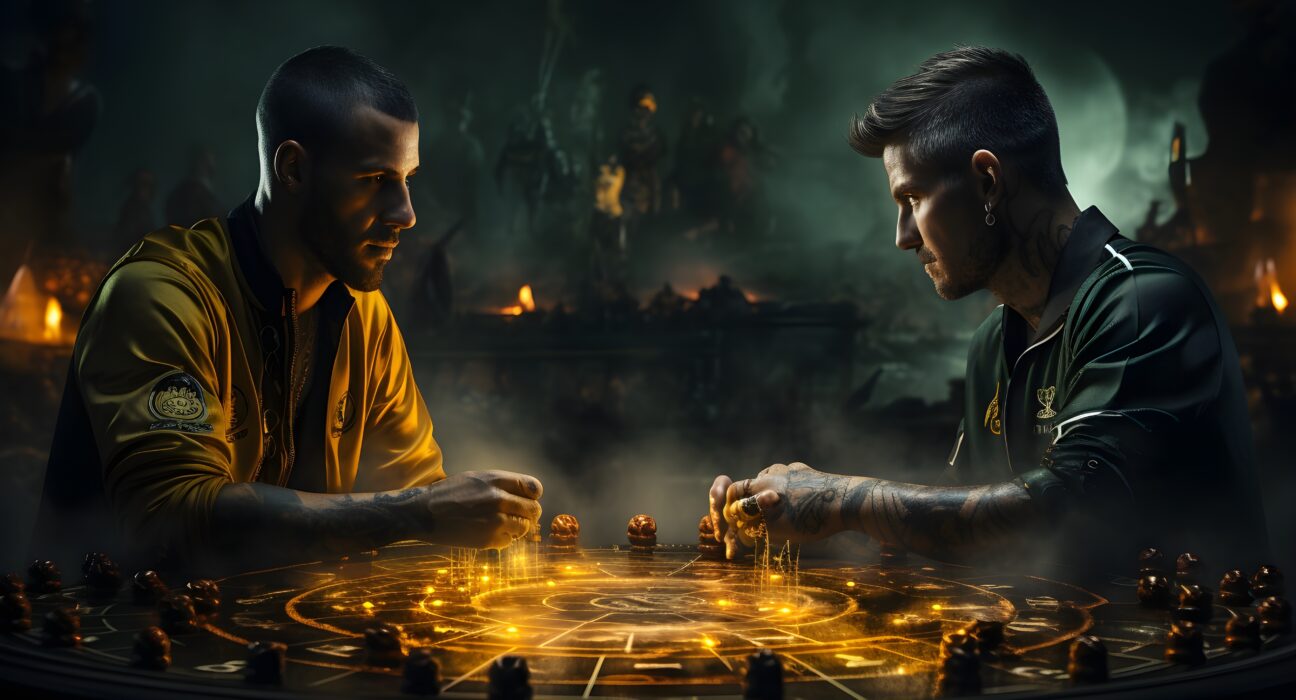Within GameFi transformation in web3 lies the concept of Decentralized Autonomous Organizations, or DAOs, reforming the developing, playing, and governing of games. Here, every player has a voice that will be heard, decisions that will be made, and a vibrant community.
This blog attends to the roles of DAOs in GameFi communities, how players are empowered, how fundings are influenced, and how decentralized gaming is revolutionized.
Understanding DAOs in GameFi
DAOs are digital entities, often smart contracts on a blockchain, designed to facilitate decentralized decision-making. In GameFi, DAOs are what binds a community together, giving players a direct say in the decisions that shape their gaming experience.
Role in Decentralized Governance
DAOs play a pivotal role in decentralized governance within GameFi ecosystems. Governance, in this sense, refers to the rules, processes, and decision-making structures that govern how a game is developed, updated, and managed.
By employing DAOs, GameFi projects distribute decision-making privileges among the community, moving away from traditional, centralized models where a few individuals hold the reins.
What sets DAOs apart is their commitment to principles that speak the values of fairness and inclusion. Transparency reigns supreme as every decision and transaction within the DAO is recorded on the blockchain, visible to all. Inclusivity ensures that every player, regardless of their in-game achievements or wallet size, has a voice in the decision-making process. It’s about making decisions not for the players but with them.
Collective decision-making is the heartbeat of DAOs. Instead of a single authority dictating the game’s fate, decisions are put to a community vote. It’s a digital democracy where the majority has the final say.
This inclusivity and collective decision-making are the main things upon which DAOs are built in GameFi, they ensure that the gaming community has a direct hand in steering the ship toward shared goals and exciting adventures.
Empowering Players
DAOs emerge as powerful instruments of empowerment, transforming players from mere participants to decision-makers.
DAOs empower players by breaking down the difficulties between developers and gamers. Traditionally, game development decisions were made behind closed doors, leaving players to adapt to changes without having a say. In DAOs, they give players a direct channel to voice their opinions, propose changes, and vote on critical decisions. It’s a paradigm shift where players become co-authors of the game’s narrative, influencing everything from new features to in-game economies.
For example, AdventureDAO is a fantasy RPG GameFi project that stands out for its player-centric approach. Through their DAO, their players participate in decisions regarding new quests, character designs, and even the distribution of in-game assets.
Challenges and Solutions
As GameFi projects embrace decentralized governance through DAOs, they encounter a set of challenges that, if left unaddressed, could hinder the smooth functioning of these community-driven decision-making structures. Here, we delve into these challenges and explore potential solutions to ensure the efficiency and effectiveness of GameFi DAOs.
Common Challenges
- Voter Apathy
In decentralized systems, getting active participation from the community can be challenging. Voter apathy may arise when players feel their votes won’t significantly impact the outcome, leading to disengagement. This results in reduced participation that undermines the democratic ideals of DAOs and may result in decisions that do not represent the wider player base.
- Decision-Making Delays
Concluding between a large community is challenging. Decision-making delays may occur when reaching an agreement takes longer than expected. Slow decision-making processes can affect the timely implementation of updates or changes, affecting the overall agility and responsiveness of GameFi projects.
Solutions
- Incentive Mechanisms
Implementing incentive structures such as governance token rewards or exclusive in-game items for active participants can combat voter apathy. Incentives create a more engaging environment, encouraging players to actively contribute to the decision-making process.
- User-Friendly Interfaces
Streamlining the user interface of DAO platforms can simplify the voting process and make it more accessible to a broader audience. Intuitive interfaces reduce friction, making it easier for players to participate in governance activities.
- Educational Initiatives
Addressing voter apathy requires education. GameFi projects can invest in community outreach and educational initiatives to help players understand the impact of their participation. Workshops, tutorials, and informative content can foster a sense of responsibility and ownership.
Conclusion
DAOs, represent a transformative force, fostering community empowerment and steering GameFi towards a future where players shape the destiny of their gaming experiences. Through transparent and inclusive structures, DAOs empower players, turning them into active contributors to the evolution of their virtual realms. Despite challenges, solutions like incentive mechanisms and user-friendly interfaces still ensure a more stable decentralized governance.














Leave feedback about this